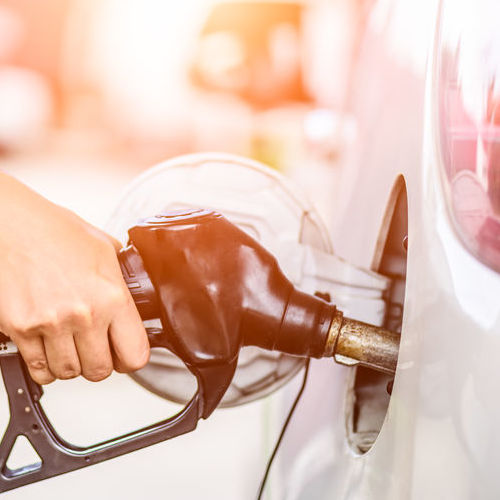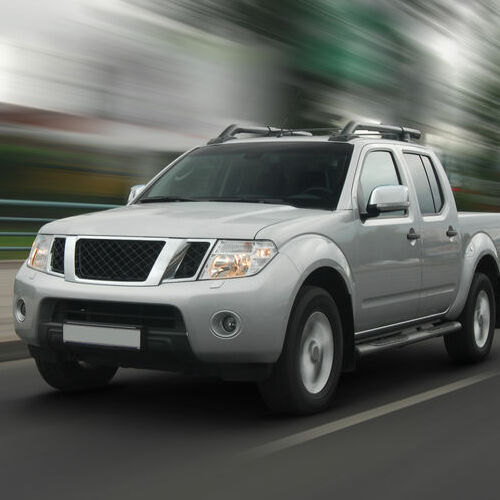
What causes poor gas mileage?
Do you seem to be driving less, but spending more time at the gas pump? Any number of issues could be causing poor gas mileage on your vehicle. One of the most common problems is low tire pressure. For better gas mileage make sure your tire pressure matches the manufacturer’s recommended pressure levels, and regularly check the tire pressure.
Another common problem is poor driving habits. If you are aggressive and accelerate quickly and frequently, you’ll use more fuel than needed. You also use more fuel when you rev your engine. On a related note, you also use more fuel when your car is parked and idling. If you are letting your car idle to warm it up in the winter, the engine only needs about 30 seconds to warm up.
You also use a lot of gas if you’re running your air conditioner constantly. Depending on where you live, you may want to turn off the air conditioner and ride with the windows open. At the same time, if you are driving at high speeds, you should keep your windows up to reduce drag.
Bad or malfunctioning parts like oxygen sensors, air filters, fuel injectors or spark plugs can also affect gas mileage. Repairing and replacing these parts will help you get better gas mileage. The oil you use also affects gas mileage. Oils that reduce friction, such as synthetic motor oils, will improve gas mileage.
No matter what kind of oil you use, if you have an oil leak, your gas mileage will be affected. When your oil is leaking in Atascadero, CA, for reliable repairs come to German Performance. Find out how we can help you by calling 805-466-3236.
What is considered good gas mileage?
Good gas mileage depends on the type of vehicle you drive, the driving conditions, your driving habits, and the vehicle’s condition. Your gas mileage is measured in miles per gallon or mpg, which is the number of miles you can travel on one gallon of gas. That number will vary for highway driving, which typically consumes less gas, and stop-and-go city driving. In many instances cars and trucks tend to get better gas mileage than SUVs, although newer SUV models are being designed to get 20 to 25 mpg, which is the typical rating for cars and some trucks. Hybrid vehicles that switch between gas and electric tend to have higher mileage rating than standard vehicles.
What affects mpg?
As noted above, gas mileage is measured in mpg, or miles per gallon, and the mpg will be affected by a variety of things. Not only will the type of vehicle you drive affect your gas mileage, how well you maintain the vehicle, how you drive it, and where you drive it will affect mpg, as well. If you drive at high speeds regularly, you’ll use more gas than if you drive at posted rates of speed. If you don’t maintain your tire pressure or get your oil changed regularly, or keep up with other maintenance, your gas mileage will decline. Wheel alignment, for instance, can help improve gas mileage by 10%, which amounts to about 31 cents per gallon.
How to get the best gas mileage
There are ways to get better gas mileage on your vehicle. Some tips to increase gas mileage include:
- Slow down: Maintaining your speed and not driving aggressively will save you in gas.
- Maintain tire pressure: Driving with tires with too low or too high of pressure will lower the gas mileage and can be dangerous.
- Use the recommended gas and oil: Using the oil and gas recommended by the manufacturer is the best choice. Premium gas or low quality oils can affect your vehicle’s performance.
- Reduce idling time: Idling for extended periods, as when waiting to pick someone up, or warming the car in winter, uses up more fuel. It only takes about 30 seconds to warm the car.
- Maintain parts like the air filter, plugs, and fuel injector: Many parts of your vehicle directly affect fuel consumption. Dirty air filters, malfunctioning plugs and fuel injectors can increase consumption.
- Reduce loads: Overloading your vehicle can be problematic. It slows the vehicle down, and heavy loads can cause the tire pressure to decrease.
Will a new fuel pump improve gas mileage?
A malfunctioning fuel pump can decrease gas mileage. You may have better gas mileage when you get a new fuel pump installed, but make sure before it’s installed that you have the fuel tank itself cleaned out. Clearing the tank of debris, dirt, and contaminants will also help with fuel economy.
Better gas mileage device
While there are products and devices on the market that claim you can get better gas mileage by using them, you have to be careful about using them for this purpose. Some of these devices can harm your vehicle rather than hurt it. Others do not work at all and are a waste of money.

How to increase fuel economy in a truck
Trucks can often get low mpg ratings. As with other vehicles, you can get better gas mileage on a truck by maintaining it regularly, and especially making sure the tires are at the right pressure. Trucks are built to haul loads, but overloading the truck will make it consume more fuel. Make sure your truck can handle the weight you want to haul. Devices like bed covers may help to reduce drag.
If you want quality maintenance for better gas mileage in Atascadero, CA, rely on the professionals at German Performance. Call us at 805-466-3236 to see what maintenance we have available.
